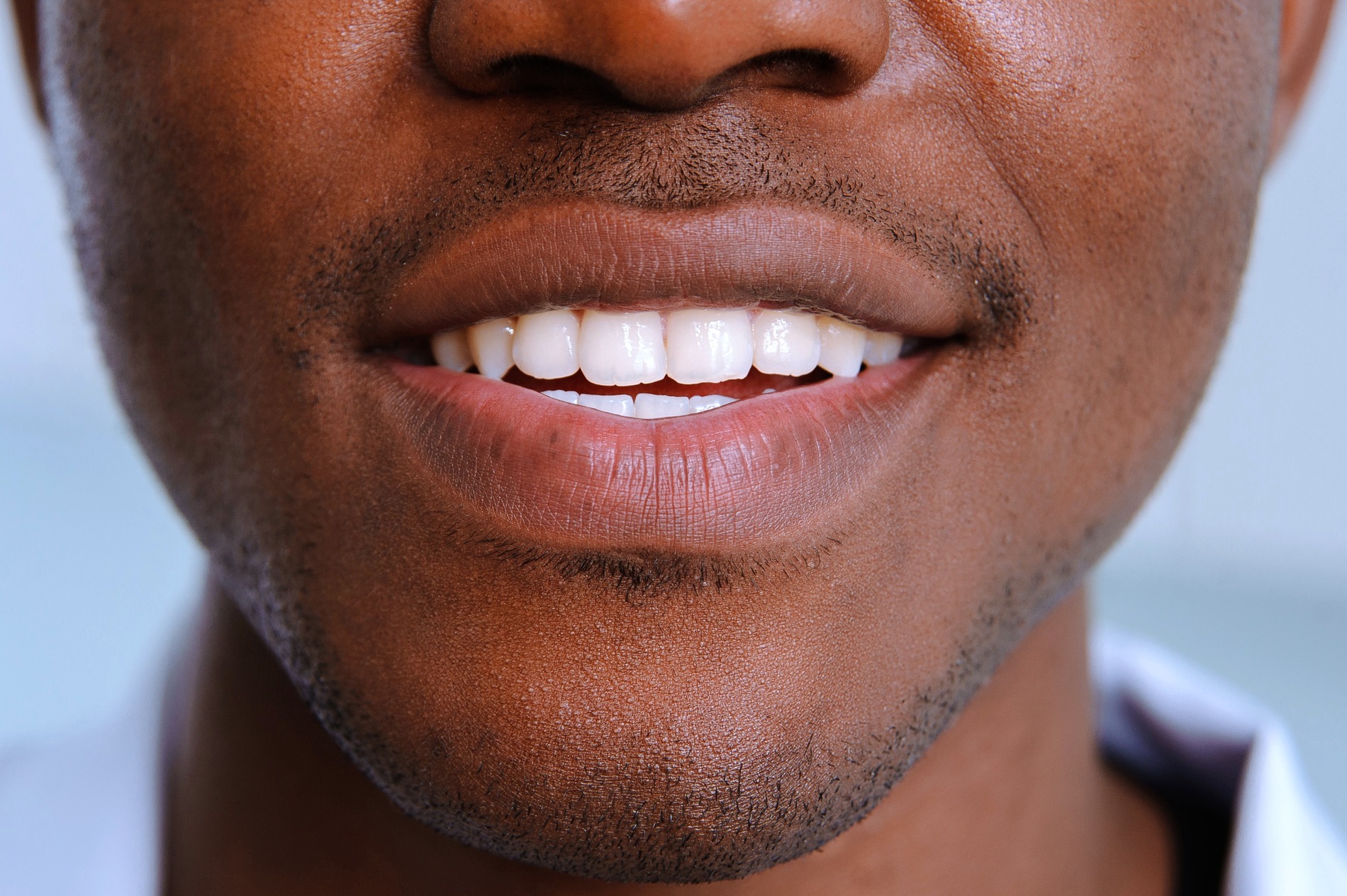
Teeth Whitening for Sensitive Teeth in Fargo ND
Many people want a brighter smile but worry that their sensitive teeth will prevent them from whitening safely. At Sheyenne Dental, we understand this concern and want you to know that sensitivity does not have to be a barrier. You can whiten your teeth comfortably and predictably, as long as the method is chosen carefully and the cause of sensitivity is understood.
Our team, led by Dr. Medora West Roehl, focuses on patient comfort, clear communication, and modern cosmetic technology. We tailor whitening plans to your unique needs so you can feel confident in both the process and the results. In this article, we explain why sensitivity happens, which whitening options are safest, and how we help patients in Fargo achieve a whiter smile without unnecessary discomfort.
This Article Will Address
- What whitening method is best for sensitive teeth
- How teeth whitening works
- What causes tooth sensitivity
- What whitening ingredients to look for or avoid
- What whitening options are safest for sensitive teeth
- How often you can whiten your teeth
- Tips to minimize sensitivity before and after whitening
- When to avoid whitening
- Whether you are a candidate for whitening if you have sensitivity
- Benefits of professional in-office whitening
- Whether tooth sensitivity can improve
What Whitening Method Is Best for Sensitive Teeth?
The best whitening method for sensitive teeth is one that protects the enamel, uses a gentle level of whitening agent, and is supervised by a dental professional. At Sheyenne Dental, we often recommend a combination of custom whitening trays with low concentration gel or an in-office treatment with built-in desensitizing care. The safest choice depends on your enamel strength, gum health, and history of sensitivity.
Our conservative approach allows us to brighten your smile while protecting the long term health of your teeth.
What Causes Teeth to Be Sensitive?
Common Causes of Sensitivity
- Enamel wear
- Gum recession
- Bruxism
- Cracks or worn restorations
- Cavities or gum disease
Why Cause Matters Before Whitening
Sensitivity is often a symptom of an underlying issue. If enamel erosion, untreated cavities, or gum disease are present, whitening could worsen discomfort. That is why we evaluate your oral health before recommending any whitening treatment. By identifying the cause of sensitivity, we can treat it first and create a safer, more effective whitening plan. This careful process builds trust and protects your comfort.
How Does Teeth Whitening Work?
Most whitening treatments use peroxide-based formulas that break down stains beneath the enamel surface. While effective, peroxide can temporarily irritate the inner nerve layer of the tooth, especially if your enamel is thin or exposed. Gentle whitening options use lower concentrations of peroxide or alternative ingredients to lift stains while reducing sensitivity. Stronger agents can produce faster results, but they are best used in a controlled clinical setting where comfort can be monitored.
Which Whitening Ingredients Should I Look For or Avoid With Sensitive Teeth?
Ingredients That Help
- Potassium nitrate
- Fluoride
- Xylitol
- Lower concentration peroxide
These ingredients strengthen enamel, calm sensitivity, and help prevent discomfort during treatment.
Ingredients to Avoid
- High peroxide gels
- Charcoal products
- Abrasive whitening pastes
- Alcohol based rinses
These can wear down enamel or irritate sensitive tissues, making sensitivity worse instead of better.
What Teeth Whitening Options Are Safest for Sensitive Teeth?
Professional In-Office Whitening
This option gives you controlled whitening with the benefit of professional supervision. We can apply desensitizing gels before and after treatment, monitor your comfort, and adjust the whitening strength. Many patients choose this method because it offers fast, predictable results with reduced risk of sensitivity.
Custom Take Home Whitening Trays
Custom trays allow you to whiten at home using lower concentration gel. The gradual process is ideal for sensitive teeth and lets you pause treatment if needed. Trays also ensure even coverage and help avoid gum irritation.
Gentle Whitening Toothpaste for Sensitive Teeth
Whitening toothpaste removes surface stains while strengthening enamel. It is a helpful option for daily maintenance or for patients seeking mild improvement.
Peroxide-Free Whitening Options
Some whitening products use natural ingredients for mild stain removal. These may include coconut oil-based formulas or other alternatives that avoid peroxide entirely. They are gentler but may offer more subtle results.
LED Whitening Kits Designed for Sensitivity
Certain LED systems use low-strength whitening agents intended for sensitive teeth. While these can be effective for mild staining, we recommend discussing them with us before use to ensure they are appropriate for your enamel health.
How Often Can I Whiten My Teeth?
Most patients can safely whiten every 6 to 12 months, depending on staining habits and sensitivity levels. Overusing whitening products can increase discomfort or damage enamel, which is why professional guidance is important. During your visit, we can recommend a schedule that fits your needs and helps keep your smile bright without unnecessary irritation.
How Can I Minimize Sensitivity During and After Whitening?
Before Whitening
- Use desensitizing toothpaste for 1 to 2 weeks
- Treat any cavities or gum issues first
During Whitening
- Use shorter wear times
- Take breaks between sessions
- Avoid hot or cold beverages
After Whitening
- Continue sensitivity toothpaste
- Avoid acidic foods
- Use fluoride rinses to support enamel
When Should I Avoid Whitening Treatments?
Whitening should be postponed if you have active decay, gum disease, significant enamel erosion, or severe spontaneous sensitivity. In some cases, pregnancy or breastfeeding may also warrant delaying cosmetic treatments. A thorough exam at Sheyenne Dental allows us to determine whether whitening is appropriate or if another treatment should come first.
Am I a Candidate for Whitening If I Have Sensitive Teeth?
Many patients with sensitivity are still excellent candidates for whitening. We assess enamel thickness, gum recession, existing restorations, and the type of staining present. This approach helps us select the safest whitening method and ensures that sensitivity is managed throughout treatment. Our goal is to provide clear information and help you feel confident in your plan.
What Are the Benefits of In-Office Whitening?
Professional whitening offers several advantages for patients with sensitivity.
- Fast, predictable results
- Clinical supervision to monitor comfort
- Desensitizing care before and after treatment
- Customized shade goals
- Proven technology for safe outcomes
These benefits align with our mission to provide exceptional service in a comfortable, family-oriented environment.
Can Tooth Sensitivity Improve Over Time?
Yes, sensitivity can improve with consistent care. Fluoride, remineralizing products, night guards, and good oral hygiene all help protect enamel and strengthen the teeth. For many patients, treating the underlying cause of sensitivity makes whitening more comfortable and effective in the future.
Start Your Journey to a Brighter, More Comfortable Smile
People with sensitive teeth do have safe and effective whitening options, especially when their care is guided by a trusted dental team. At Sheyenne Dental, we combine a family-centered approach with modern cosmetic tools to help patients brighten their smiles with confidence. Dr. Medora West Roehl and our skilled team will evaluate your sensitivity, recommend the right whitening method, and ensure your comfort from start to finish.
To explore the best whitening options for your sensitive teeth, contact Sheyenne Dental in Fargo, ND, to schedule your consultation.
Sources
Journal of the American Dental Association

Dr. West-Roehl
Dr. Medora West-Roehl, DMD, is the owner and dentist at Sheyenne Dental in West Fargo, ND. A Fargo-Moorhead native, she earned her Bachelor of Science from North Dakota State University and her Doctor of Dental Medicine from Midwestern University in Glendale, AZ. With years of experience serving patients in the Casselton and West Fargo communities, Dr. West-Roehl is dedicated to combining advanced dental technology with a warm, personalized approach. She is a member of the American Dental Association, North Dakota Dental Association, and Southeastern District Dental Society, and is committed to helping patients feel comfortable and confident in their care.
